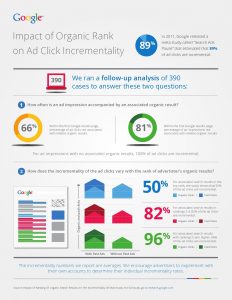Search engine optimization (SEO) allows search engines to more effectively index websites in organic listings on search engine result pages compared with paid advertisements such as AdWords that appear.
SEO strategies focus on understanding user intent, which differs depending on each search query, as well as optimizing pages and content so Google recognizes what you offer.
Keywords
Keywords are an integral component of SEO strategies, helping search engines interpret what the content of a page is about and match it with user queries. They also help differentiate topics when two sound similar.
Singular keywords have high search volumes but can be challenging to rank for due to strong competition. For instance, boutique clothing store trying to rank for “clothes” will face stiff opposition from stores such as Nordstrom and Amazon. Utilizing additional keywords may narrow your rankings and help reach your target audience more efficiently.
Keywords can also be utilized in meta descriptions, which appear on SERPs and encourage users to click a link. Meta descriptions must be relevant to each keyword and provide users with a clear idea of what users can expect from visiting your page. Meta descriptions also provide an opportunity to assess how well on-page keywords are performing; the more pertinent they are, the higher you’ll rank on search engine results pages.
Content
As most marketers understand, quality content is fundamental for search engine optimization of any website. Both elements work hand in hand to provide full effectiveness of SEO. There are various techniques you can employ when optimizing content for SEO purposes and it is vital that search engine optimization be seen as a continuous process.
SEO content is created with both humans and search engines in mind, with keywords being strategically utilized while creating high-quality, informative and useful material.
Quality SEO content can help businesses generate leads and expand their business, as well as build trust with potential customers. There are various methods you can employ to enhance SEO content creation such as using semantics (taking advantage of words’ meanings, synonyms and relationships with other words) or optimizing image file names – although these changes might not immediately have an effect on ranking results, they still affect how Google values pages.
Link building
Before Google entered the scene, search engines such as Yahoo and Alta Vista used content ranking as their basis for ranking websites. Google’s innovative PageRank algorithm changed everything, rewarding those websites with numerous links while penalizing those lacking links – leading to them falling off search engine lists altogether. Links remain at the core of web activity today and an entire industry exists dedicated to creating and optimizing links for maximum visibility.
Not all links are created equal; some may be the result of deliberate SEO efforts by SEO professionals and marketers, while others can simply arise organically (such as when journalists cover stories with source links).
As an established authority on its topic, The New York Times can pass more “link equity” than smaller, niche blogs; however, that doesn’t preclude targeting smaller blogs if done strategically. Link building can not only boost organic search rankings but can also drive referral traffic and build brand recognition.
Analytics
Metrics are essential to an effective SEO campaign. Metrics allow you to monitor progress and garner buy-in from key stakeholders while setting measurable and attainable goals for the future. Some examples of measurable metrics include dwell time, bounce rate and the number of links pointing back to your site.
Search engines are constantly upgrading their algorithms in order to deliver optimal results to their users, so it’s vitally important for businesses to stay abreast of industry developments and trends.
SEO is all about drawing website visitors who will become customers, clients or audiences who return time after time. While visibility in search engine results is crucial, optimizing content and web architecture so as to rank higher organic searches is also necessary; this includes optimizing site structure, HTML code and structured data as well as avoiding toxic SEO tactics which could result in penalties from Google and damage your rankings further.







